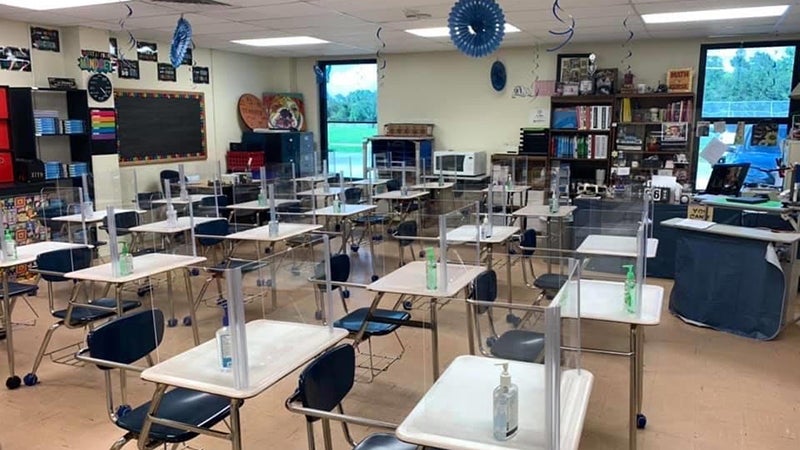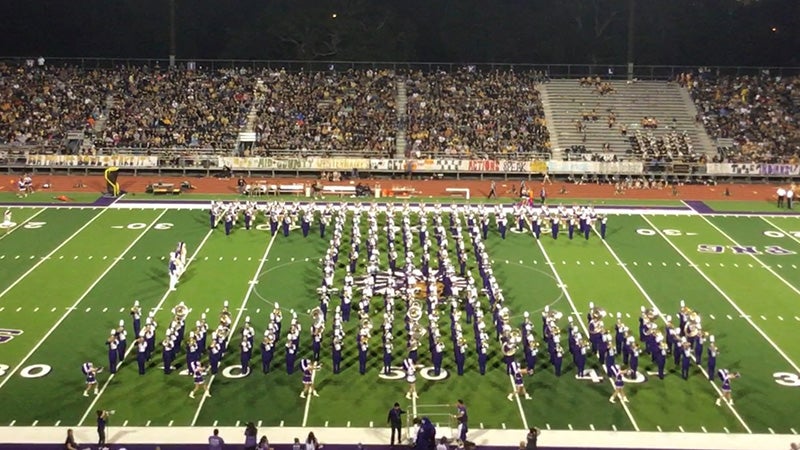A closer look at PAISD’s coming tax election
Published 5:25 pm Friday, July 7, 2017
The Port Arthur Independent School District will hold a Tax Ratification Election (TRE) in August to decide whether or not to adopt a new Maintenance & Operations (M&O) tax rate.
During the June meeting of the PAISD board, the trustees adopted a M&O tax rate of $1.17, which was 13 cents higher than the current rate of $1.04. The new rate exceeds the maximum rate the board can pass without voter approval so, by law, an election must be held giving voters the final say.
The district has not raised its M&O tax rate since 2007.
If the measure passes, it will bring in millions and allow the district to expand curriculum, offer more services and give raises to all employees. In addition, it would mean the district would not feel as squeezed in coming years as the state takes added money from the district through its school-funding formula.
According to school finance experts Moak, Casey & Associates (MC&A), if passed, the new rate will generate an estimated $4.6 million in additional annual local revenue and an additional $1.3 million in state aid for a net M&O revenue of $5.9 million.
“The premise behind raising taxes for the M&O rate is to better equip the district in helping students to perform better,” Mark Porterie, PAISD superintendent, said. “That is our ultimate goal — student success.”
Porterie listed a variety of services, programs and financial issues that the additional M&O money would be used for. Among these include improved and/or expanded curriculum programs like bilingual education, a Virtual School and reading program, better social service needs for PAISD students; purchase of auxiliary equipment for transportation, maintenance and custodial operations and a salary increase for all PAISD employees.
“We work on the compensation programs for our employees,” Porterie said. “With the hike in insurance benefits, if we don’t give the raise to the 1,400 employees in our district, then they will take home less money than they did in the 2016-17 school year.”
However, Porterie was quick to point out PAISD’s commitment to keep its Interest and Sinking (I&S) Fund tax rate below 32 cents per $100 property valuation.
“We kept our promise to keep the I&S rate,” Porterie said. “No tax increase, and we meant it.”
However, the school district faces a loss in state funding in the 2018-19 school year when local agreements with Motiva and TEPPCO expire, forcing PAISD to pay recapture.
Property-wealthy districts like Port Arthur are required to help out property-poor districts through the state’s recapture or “Robin Hood” school funding formula.
The state has changed its funding formula several times through the years. In fact, as recently as 2006, residents were paying an M&O tax rate of $1.50, until the state legislature changed tax laws and the rate was lowered to its current rate.
In other words, even if the new tax rate passes, it will still mean area residents will have lower taxes than in 2006.
PAISD is already classified as a property rich district by the state, yet it has not had to pay any recapture yet due to its various agreements with industries like Motiva and TEPPCO.
The Texas Comptroller allows industries to build or install property and create jobs in exchange for a 10-year limitation on the taxable property value. Next year, some of those expire, meaning the refineries will pay more taxes—and the state—will take more from the district.
According to Moak, Casey & Associates, the PAISD board has approved seven such agreements, dating back to 2002. As a result, there was a $4.2 billion deduction from M&O taxable value in the 2016-17 school year.
However, PAISD’s agreements with Motiva and TEPPCO are set to expire after the 2017-18 school year. This is expected to add $3.2 billion to the M&O tax base for the 2018-19 school year and to generate a “substantial” one-year M&O tax rate savings for the 2018-19 year, according to MC&A.
This increase in the district’s M&O rate will trigger recapture for the 2019-20.
Porterie said that when Motiva goes online, the district’s values would nearly double, but not in the way some would think.
“When the (Chapter) 313 agreement expires and Motiva goes online, our values would almost double — but that doesn’t mean we get any extra money. We have to pay it back to the state.”
Porterie said, “We’re not rich; we’re just surrounded by refineries.”
He compared PAISD’s property-rich status to an average person who just happens to live in a rich person’s home. The average person may live in a wealthy house, but it doesn’t mean that person is wealthy.
Porterie also stressed that even if the TRE doesn’t pass and the M&O rate stays at 1.04, the limitation agreement would still expire in 2018-19 and the district would have to pay back the money to the state the following school year.
Porterie also pointed out the fact that PAISD is the only district in the area — including Port Neches and Beaumont — that pays Social Security, approximately eight percent of yearly salary costs.
Still, Porterie emphasized the importance of student education.
“Our kids deserve everything we can afford to give them,” Porterie said.
Following that philosophy, Porterie said he felt a small increase in taxes was not too much to ask.
According to Moak, Casey & Associates, the average Port Arthur homeowner with a home valued at $52,065 would see their homeowner tax increase from $365 to $418, a rise of $53 per year. MC&A said a portion of that increase would come from an increase in the market value of their home.
Porterie pointed out that the total increase for said home would be less than $5 more a month.
“I don’t think that’s an astronomical amount to ask the community to invest in its students,” Porterie said.
“It’s not only for the children, but for our community,” Porterie said. “When you invest in children, you invest in community.”





